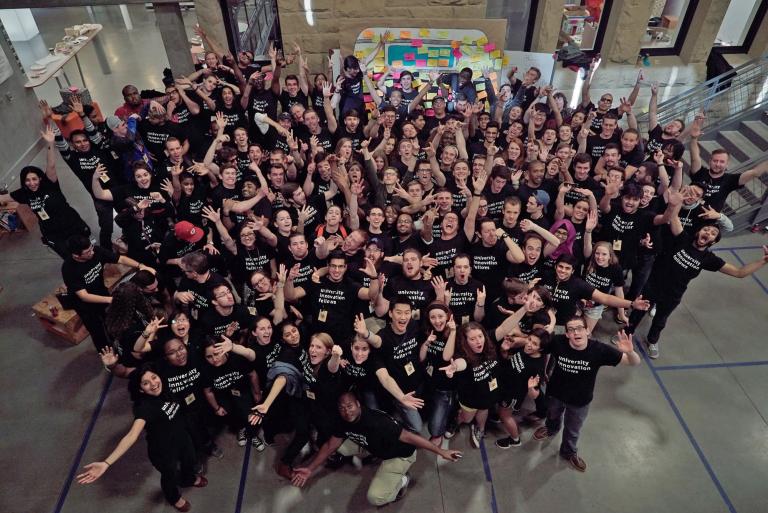
“What I brought back was the culture and mentality that I observed in the physical spaces that help develop the entrepreneurial thought process.”
Kettering University students are striving to continue to improve the entrepreneurial curriculum and training on campus by once again participating in the University Innovation Fellows program at Epi Center: National Center for Engineering Pathways to Innovation at Stanford University.
Last year, Saheb Kapoor ‘14 and Hunter Casbeer participated in the program which resulted in improvements to the University’s T-Space and a greater understanding of what makes a physical space truly entrepreneurial.
This year, Alan Xia and Cheyne Westerman were two of the 125 students from around the country participating in the six-week program that concluded with a trip to the innovative and entrepreneurial facilities in the heart of Silicon Valley.
“I went into it with a pretty open mind,” Westerman said. “What I brought back was the culture and mentality that I observed in the physical spaces that help develop the entrepreneurial thought process.”
Both Xia and Westerman are involved in the Kettering Entrepreneur Society (KES) and brought back ideas that will help reimagine the organization’s efforts in hopes of continuing to encourage and spur creativity.
“We want KES to be more active rather than passive,” Westerman said. “We are going to incorporate activities with more interaction, more energy, more movement and more collaboration.”
After participating in the University Innovation Fellows programs, Xia wants to work on further engaging the student body.
“Students are pre-conditioned to think that for the rest of their lives they will have a 9-to-5 job. It creates huge tunnel vision,” Xia said. “How do we get students out of the mindset? How do we get more creative and more innovative? How do we really get them to think outside the box and about entrepreneurship?”
In addition to the T-Space, which opened on campus last year, Xia believes that Kettering also needs to open up lab spaces for recreational and creative purposes and not just for use during classes.
“Labs as they are currently designed in the classroom allow students to learn by execution, it doesn’t let you learn by play,” Xia said.
Xia is proposing open lab, foundry and welding days on campus to encourage students to create while they are in school. Beyond the physical spaces, the importance of the entrepreneurial mindset was reinforced in the program.
The entrepreneurial mindset is supportive, collaborative and encourages individuals to explore a multitude of ideas. Specifically, Xia was enamored with the concept of "Pretotyping" which calls for the rapid execution of many ideas. Pretotyping aims for as increase in fast failures with minimal time and financial investment and a decrease in slow failures that require significant investment of labor and resources.
“The big thing is the rapid execution of ideas.” Xia said. “Planning is key, but if you can have many executions, then you subsequently have many learning experiences. Fail fast and often in the early stages of development, and the multitude of learning experiences will help you execute something incredible based on all your prior learnings.”
Although both Westerman and Xia were enamored with the facilities and resources in Silicon Valley, both returned to Kettering with a rejuvenated belief in Michigan’s geography and the potential it holds for entrepreneurial success.
“I think a lot of people say, 'hey I have to go to California' if I want to be an entrepreneur or an innovator,’” Xia said. However I believe that innovation is everywhere, whether it be California, Michigan, or anywhere else. I believe Michigan and Kettering can not only learn and utilize many of the ideas and innovative mindsets from Silicon Valley, but take those learnings and make it unique to our local geography and population.”